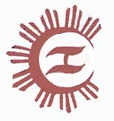|
|
|
 |
CENTENNIAL YEAROF BONIFACIO'S DEATHBy Ed Aurelio C. ReyesKamalaysayan Writers and Speakers(June 1995) |
|
![]() (This page has a CYBER TALK-BACK instant feedback box at the bottom.)
(This page has a CYBER TALK-BACK instant feedback box at the bottom.)
![]()
![]() HE
TENTH OF MAY every year marks the little- known death anniversary of Andres
Bonifacio, and this year is not just any other anniversary. It is the 99th, and
as such it marks the start of the centennial year of this national hero.
HE
TENTH OF MAY every year marks the little- known death anniversary of Andres
Bonifacio, and this year is not just any other anniversary. It is the 99th, and
as such it marks the start of the centennial year of this national hero.
KAMALAYSAYAN marked the affair last May with a poetry reading at the University of the Philippines at a seminar-workshop of Metro Manila school teachers, which is sponsored by the UP Department of History, an active participant in the SENTENARYO 96 commemoration campaign.
The poem, penned by this writer before last Holy Week, and read by UP Prof. Portia Reyes, is titled "Isang Pasyon: Pagsunod ni Andres sa Landas ni Hesus." It has seven parts with seven stanzas each.
However, KAMALAYSAYAN will spearhead projects and activities for this particular centennial commemoration not earlier than January 1997, because until August the focus will be on the centennial of the birth of our nation in the 1896 Philippine Revolution, and from September to December this year, spotlight will be on the death centennial of the other national hero, Jose Rizal.
What we want, actually, is no less than a symbolic state funeral for Bonifacio on May 10 next year. He has not yet been given a decent burial. This writer has been invited to sit in the Andres Bonifacio Centennial Committee, chaired by Manila Mayor Alfredo Lim. We hope this tieup can push the proposed state funeral to reality. On the run-up to that date in midyear 1997, people will surely be discussing the unfortunate circumstances surrounding Bonifacio's killing.
KAMALAYSAYAN's pool of historians is ready to take on any attempt on the part of other quarters to gloss over or even reverse the matter of General Aguinaldo's full responsibility for his execution, which the general admits in a letter now on display at the Tutuban Museum.
But let all be assured that KAMALAYSAYAN will focus more attention on informing the people more on Bonifacio's life than on his death.
Guesting in Prof. Randy David's television talk show, Public Forum, last November, where thick speculations were being aired about details of his actual killing, I brought up the reminder that the only witness we have of the execution was the executioner himself, surely not a credible witness by any reckoning. Then, I segued to what I felt was the more important point: instead of sinking and drowning in speculations about how he died, let's all familiarize ourselves and the rest of the people about how he lived.
Between the abanicos and Tejeros, there's so much to be learned about this hero, whom we consider as Father of the Filipino Nation. Aside from being a brave man of action who loved his country passionately, Bonifacio was a brilliant literary writer, a wide reader and philosopher, a theater artist, a brilliant general, and a statesman who founded and headed the first native government to encompass all who were of this archipelago.
It was also a plug for my book, Bonifacio: Siya Ba Ay Kilala Ko? (Bonifacio: Do I Really Know Him?) which gives documentary citations about all these assertions about him.
(Kamalaysayan Media Service)![]()
|
|
|
..
|
![]()
![]()
![]() back to the website opening window
back to the columns opening window
back to the website opening window
back to the columns opening window![]()